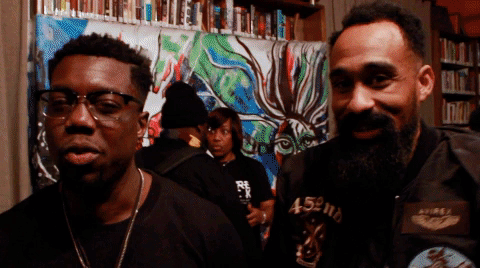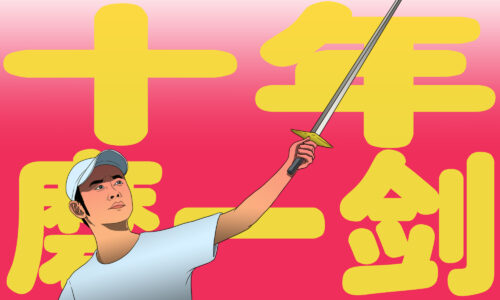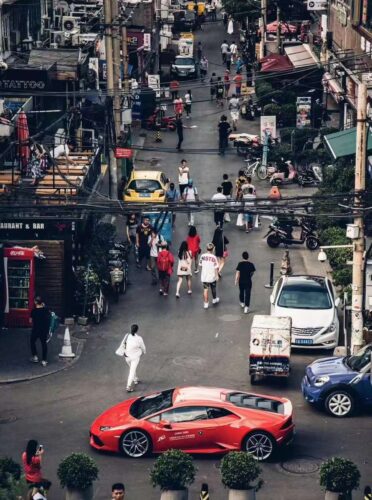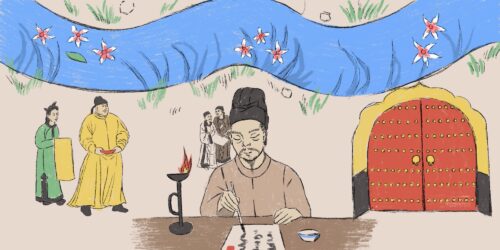Beijing event promotes black visibility, community building in China

Video by Cassidy McDonald (also available on Youku)
Poets, activists, authors, and observers packed the Beijing venue The Bookworm on Friday night for a spoken-word event called Culture Shock, organized by BLK GEN (short for “Black Genius”). It was highlighted by a performance by Bay Area poet/rapper/activist Tyson Amir, whose work investigates structural racism, intergenerational trauma, addiction, incarceration, and identity.
The nearly three-hour event also included songs and words from eight Beijing-based performers, followed by an open mic session. The performances centered on the theme of identity formation in the context of cultural exchange, specifically the dialogues and misunderstandings that can arise from the collision of cultures.
That it happened in Beijing — in front of a multicultural crowd representing multiple countries, not least of which China — made the night all the more special. “Art has always been the universal language,” said Madeline Richard, an American in the audience.
BLK GEN held its first event in February 2017 and has quickly become known for bringing together communities from around the world. The group was founded by Leroy Adams and Nayyir Shareef, both originally from the United States, who saw a need to create a space using performance and art to bridge cultures and backgrounds.
“I think there’s something about poetry, and art in general, that tears down walls and barriers that we build up,” Adams said. “I think people enjoy seeing different expressions of art being used to deliver powerful political and social messages. It’s a very intimate medium to connect across cultural lines.
“I’ve been fortunate to travel and see the black community doing different things all over the world, so we wanted to give them a voice. Talent, culture, art — these things bring people together and inspire people.”
Highlights from Friday included Uchechi Kalu, a Nigerian American who has been living in Beijing for four years, performing an a cappella rendition of “Strange Fruit,” and a performer who went by “Mystic” sharing her experiences of being photographed by strangers in China: “Dear, people come in different colors. I’m stunned that I had to be the one to tell her. Innocence wrapped in ignorance. 我可以拍照吗? (wǒ kěyǐ pāizhào ma — Can I take a picture?) You’re so beautiful.”
Amir performed two poems, “Between Huey and Malcolm” (from his 2016 book, Black Boy Poems) and “Tradition.” From the latter:
They preferring the shadow while we shining immaculate, they green with envy cuz they can’t manufacture it. In these mean streets, the beast just wanna feast. He just pulled up his seat, unfold his handkerchief, it’s like dinner is served, monsieur, bon appetit. The judges, the police, the government on the sneak, the saga never cease, the cycle on repeat, the enemy on the creep. The torch was passed to me. I’m trying to carry on tradition for my people to be free. Let’s get free.
The Legacy of the Black Panther Party in China: Q&A with Tyson Amir
“I always tell people, if art, culture, and literature weren’t strong agents to change society, then governments wouldn’t work so hard to ban certain types of literature, to remove certain types of art from history,” Adams said. “All these people did was take a pen and write something, and it changed society.
“It’s definitely bringing our culture here. I want you to learn about me, from my own mouth. Don’t listen to the big-media propaganda. Let’s sit down and have a conversation.”
BLK GEN founders Nayyir Shareef and Leroy Adams can be reached via Nayyir@BLKGEN.com and Leroy@BLKGEN.com.
More poetry:
U.S. poet laureate Tracy K. Smith on Chinese poetry, language, and the allure of China





